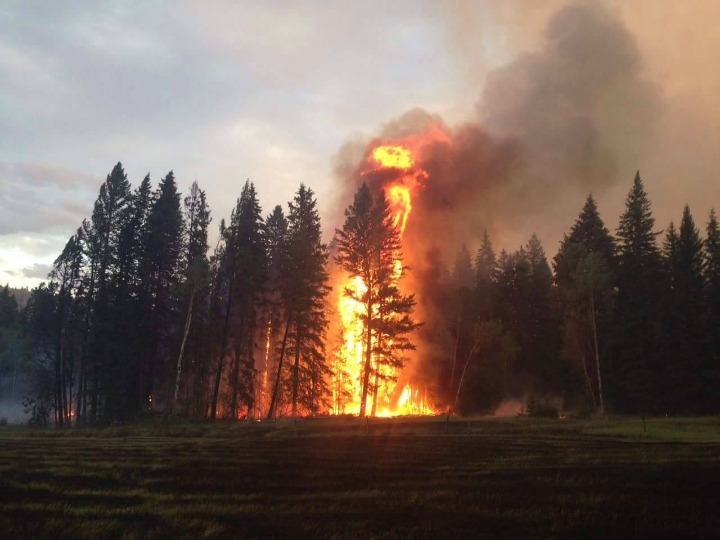WATCH: More than 13,000 people have now been forced to flee their homes because of wildfires — the largest evacuation in Saskatchewan history. At least 50 communities are at risk. The military is now on its way to help. Reid Fiest reports.
REGINA – Close to 1,000 military personnel are on their way to help fight wildfires in Saskatchewan. Duane McKay, commissioner of emergency management with the province, says some of the military are expected to begin deploying as early as Sunday.

Others may take longer to arrive, as McKay notes that being a soldier is different from being a firefighter, so additional training may be required.
“They will be completely self-contained and they will augment wildfire operations and so we’ll see them on the fire line,” McKay said. “Hopefully that will bolster our ability to do two things – to fight the fires as well as maintain our fire operations over the next 10 to 14 days.”
READ MORE: Fire evacuation largest in Saskatchewan’s history
Provincial officials say the amount of land that’s burning in Saskatchewan this year is around 10 times what’s normal.
Steve Roberts with the wildfire management branch of the environment ministry said over the last five years, 30,000 hectares burn annually in high-priority zones.
WATCH: As of Sunday, there are 110 active wildfires in Saskatchewan with more than 50 of those larger than 100 hectares. Cities and towns further south are welcoming evacuees and now neighbouring Alberta is providing support. Quinn Ohler reports.
He said 300,000 hectares are burning in those zones this year.

Get breaking National news
The military’s help was already anticipated from the Canadian Forces base in Cold Lake, Alta., when the province announced Saturday that evacuees from La Ronge would head to centres in the neighbouring province.
Premier Brad Wall said Saturday that he’d spoken on the phone earlier in the day with Prime Minister Stephen Harper about the possible need for military help, and that Harper had been “accommodating” to such a request when it was officially made.
McKay said municipal fire services in Saskatchewan were also sending equipment and firefighters to help.
IN PHOTOS: Wildfires rage across Saskatchewan
READ MORE: Saskatoon firefighters deployed to help protect La Ronge from wildfires
The Alberta government said it was preparing to receive up to 5,000 people from the La Ronge evacuation. Saskatchewan officials said 1,136 had registered in La Ronge and were transported to Cold Lake on Saturday night, while thousands of others were travelling out of the community on their own and would likely stay with friends or family.
Local officials made the call to evacuate La Ronge, as well as the neighbouring community of Air Ronge and the Lac La Ronge Indian Band, when the flames crossed a safety threshold, McKay said. On Sunday, he said the fire burned on the edge of the airport about five kilometres north of the town.
“There’s a large number of folks that are still up there supporting the ongoing operations,” McKay said.
WATCH: Saskatchewan to get military help battling fires in northern part of province. Amber Rockliffe reports.
READ MORE: Thousands more flee from Saskatchewan wildfires
Karri Kempf with Saskatchewan’s social services ministry said the decision to send the La Ronge evacuees to Alberta was made to ensure there would still be some room left in the Saskatchewan centres where earlier evacuees from other fires are being housed.
“We’re noticing now a lot of people moving on their own into our system who had started out with friends and family and some of those places have been exhausted and they’re coming back in and receiving service now,” Kempf said.
“We’re receiving people at our reception centres and shelters who are returning from vacations,” she continued, noting there were other communities where there may be more evacuations.
“We need to maintain some capacity because our numbers will fluctuate within the province.”
Roberts said arson is suspected in six fires that started Saturday afternoon west of La Ronge near the community of Hall Lake. He said RCMP and conservation officers are investigating the incidents.
















Comments
Want to discuss? Please read our Commenting Policy first.